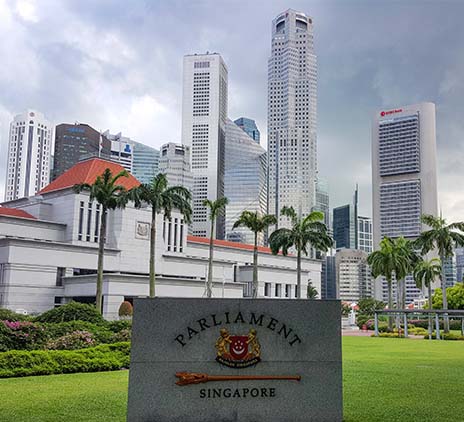-
Accounting Advisory
Our accounting advisory team help businesses meet their complex financial reporting requirements. The team can support in applying new financial reporting standards, IFRS/ US GAAP conversions, financial statement preparation, consolidation and more.
-
Payroll
Our team can handle your payroll processing needs to help you reduce cost and saves time so that you can focus on your core competencies
-
Managed accounting and bookkeeping
Outsourcing the financial reporting function is a growing trend among middle market and startup companies, as it provides a cost-effective way to improve the finance and accounting function. Our team can help with financial statement preparation, consolidation and technical on-call advisory.
-
Accounting Advisory
Our team helps companies keep up with changes to international and domestic financial reporting standards so that they have the right accounting policies and operating models to prevent unexpected surprises.
-
Crypto Accounting Advisory Service
Our team can help you explore appropriate accounting treatment for accounting for holdings in cryptocurrencies, issuance of cryptocurrencies and other crypto/blockchain related accounting issues.
-
ESG Reporting and Accounting
As part of our ESG and Sustainability Services, our team will work with you on various aspects of ESG accounting and ESG reporting so that your business can be pursue a sustainable future.
-
Expected Credit Loss
Our team of ECL modelling specialists combine help clients implement provisioning methodology and processes which are right for them.
-
Finance Transformation
Our Finance Transformation services are designed to challenge the status quo and enable your finance team to play a more strategic role in the organisation.
-
Managed Accounting and Bookkeeping Services
Outsourcing the financial reporting function is a growing trend among middle market and startup companies, as it provides a cost-effective way to improve the finance and accounting function. Our team can help with financial statement preparation, consolidation and technical on-call advisory.
-
Business Tax Advisory
Our business tax team can help you navigate the international tax landscape, grow through mergers and acquisitions, or plan an exit strategy.
-
Corporate Finance
Our corporate finance team helps companies with capital raising, mergers and acquisitions, private equity, strategic joint ventures, special situations and more.
-
Financial Due Diligence
From exploring the strategic options available to businesses and shareholders through to advising and project managing the chosen solution, our team provide a truly integrated offering
-
Valuations
Our valuation specialists blend technical expertise with a pragmatic outlook to deliver support in financial reporting, transactions, restructuring, and disputes.

-
Sustainability with the ARC framework
Backed by the CTC Grant, businesses can tap on the ARC Framework to gain access to sustainability internally, transform business processes, redefine job roles for workers, and enhance productivity. Companies can leverage this grant to drive workforce and enterprise transformation.

-
Business Tax Advisory
Our business tax team can help you navigate the international tax landscape, grow through mergers and acquisitions, or plan an exit strategy.
-
Corporate Tax Compliance
Our corporate tax teams prepare corporate tax files and ruling requests, support you with deferrals, accounting procedures and realise tax benefits.
-
Tax Governance
Our Tax Governance Services are designed to assist organisations in establishing effective tax governance practices, enabling them to navigate the intricate tax environment with confidence.
-
Goods and Services Tax
Our GST team supports organisations throughout the entire business life-cycle. We can help with GST registration, compliance, risk management, scheme renewals, transaction advisory and more.
-
Transfer Pricing
Our Transfer Pricing team advises clients on their transfer pricing matters on and end-to-end basis right from the designing of policies, to assistance with annual compliance and assistance with defense against the claims of competing tax authorities.
-
Employer Solutions
Our Employer Solutions team helps businesses remain compliant in Singapore as well as globally as a result of their employees' movements. From running local payroll, to implementing a global equity reward scheme or even advising on the structure of employees’ cross-border travel.
-
Private Client Services
Our private client services team provides a comprehensive cross section of advisory services to high net worth individuals and corporate executives, allowing such individuals to concentrate on their business interests.
-
Welfare and benefits
We believe that a thriving team is one where each individual feels valued, fulfilled, and empowered to achieve their best. Our welfare and benefits aim to care for your wellbeing both professionally and personally.
-
Career development
We want to help our people learn and grow in the right direction. We seek to provide each individual with the right opportunities and support to enable them to achieve their best.

Recap of the OECD's detailed implementation plan
On 8 October 2021, the OECD/G20 Inclusive Framework on Base Erosion and Profit Shifting (IF) agreed on a detailed implementation plan relating to the two-pillar solution to address the tax challenges arising from the digitalisation of the global economy.
Pillar 1 – re-allocation of profits based on customer’s location
Pillar 1 is aimed at re-allocating a portion of the profits of the biggest and most profitable multinational enterprises (MNE) to the countries where their consumers are.
MNEs that will be included in Pillar 1 are those whose global revenues are above Euro 20 billion with a profit margin above ten percent. The amount of residual profits that will be re-allocated to the market jurisdiction is now fixed at 25%.
Pillar 2 – global minimum corporate tax
Pillar 2, also known as the Global Anti-Base Erosion (GloBE) rules, ensures that MNEs with a global turnover in excess of Euro 750 million that operate in jurisdictions that are subject to an effective corporate tax rate of less than 15% will top up the taxes paid in those jurisdictions, in their “home” jurisdiction, based on the difference between the corporate minimum tax rate of 15% and the effective tax rate suffered in that other jurisdiction.
Summary of Global Anti-Base Erosion (GloBE) rules under Pillar 2
- It is not mandatory for members of the Inclusive Framework (IF) to apply the GloBE rules. However, under the common approach status, members who choose not to apply the GloBE rules must accept the application of GloBE rules by another member of the IF that has MNEs operating in its jurisdiction.
- Two interlocking rules – Income Inclusion Rules (IIR) and Undertaxed Payment Rules (UTPR).
The IIR serve to top up taxes (to 15%) in the country where the ultimate parent entity is tax resident, if the effective tax rate suffered in the operating country is below 15% (low tax jurisdictions). The IIR can be applied to another entity further down the ownership chain if the ultimate parent does not adopt GloBE rules.
The UTPR serve as a backstop rule to deny deductions or impute an equivalent adjustment to the extent that the excess profits computed under GloBE is not subject to tax under the IIR.
- Entities excluded from GloBE calculations include government entities, international organisations and non-profit organisations and entities that meet the definition of a pension, investment or real estate fund.
- De Minimis Rule – An MNE can exclude entities located in countries with GloBE revenues of less than EUR 10 million and GloBE income of less than EUR 1 million. GloBE income is defined as that computed under paragraph 3 of Model Rules.
- The Tax Base for the application of GloBE rules is the entity’s financial accounting income but excludes certain temporary differences and prior year losses.
- Income Based Substance Carve-out - the Tax Base allows for an income-based substance carve-out from the GloBE income based on 10% of the carrying value of tangible assets located in the jurisdiction and eight percent of payroll costs for employees that perform activities in the jurisdiction. These two percentages will slowly be reduced to 5% over a 10-year transition period.
- Effective Dates - IIR and UTPR rules are expected to take effect in 2023 and 2024 respectively.
Pillar Two
-
Commentary to GloBE rules – expected to be released in February 2022
-
How the United States’ Global intangible low-taxed income (Gilti) rules will interact with the GloBE rules
-
A model treaty article for a subject-to-tax rule (STTR) will be released in early 2022. This rule allows source jurisdictions to impose withholding tax on certain payments that are subject to tax below a certain rate.
What the GloBE rules may mean for Singapore
At first glance, it would appear to be difficult for small countries like Singapore to continue to encourage MNEs to be set up business in Singapore through the use of tax incentives, as the GloBE rules appear to be rather “watertight”.
This is because, under the common status approach, even if Singapore does not impose the GloBE rules, the GloBE rules allow another entity further down the ownership chain to obtain the top-up taxes through the IIR. If not, the UTPR backstop rules will serve to claw back these top-up taxes via denial of tax deduction or other tax adjustment.
However, upon closer examination, the GloBE rules continue to reinforce first principles, which are centred on the fact that countries should only hand out substance-based tax incentives.
The current rules for computing the Tax Base allows for a substance-based income carve-out based on a percentage of the value of the tangible assets and payroll costs located in the operating jurisdiction.
For this reason, so long as MNEs that are intending to come to Singapore have substance in terms of headcount and tangible assets, the incidence of the corporate minimum tax may not affect them.
Singapore has always insisted on headcount and investment criteria in the tax incentives awarded and the emphasis on these criteria should be strengthened.
Moreover, tax is not the only reason MNEs choose to locate in Singapore. Many MNEs choose to be based in Singapore for reasons other than tax, for example a well-educated workforce, strong rule of law, stable political environment, world class financial services environment, etc.
Thus, we believe that Singapore will remain attractive to MNEs, particularly since the initiative is levelling the tax playing field for its competitors as well.
Notwithstanding this, there are also non-tax incentives that can be explored to attract MNEs to Singapore such as the use of grants and rebates for the re-location of talent to Singapore, investment in technology, abatement of rental costs, etc.
Lastly, looking beyond general measures to attract MNEs, the focus should perhaps be on the specific sectors which Singapore should encourage.
As pension, investment or real estate funds are excluded from the scope of the GloBE rules, these sectors should provide new (or increased) areas of focus for Singapore in the coming years.
The tax climate has certainly changed drastically over the last few of years but not all is lost. We cannot direct the wind, but we can certainly adjust the sails.
We have given the Ministry of Finance (MOF) some suggestions on ways to keep Singapore competitive in light of the global minimum corporate tax. These suggestions are part of our feedback for the Singapore Budget 2022 and Beyond.
Read our feedback to the MOF in our Singapore Budget 2022 page
Join our mailing list to keep updated on changes in the tax landscape





